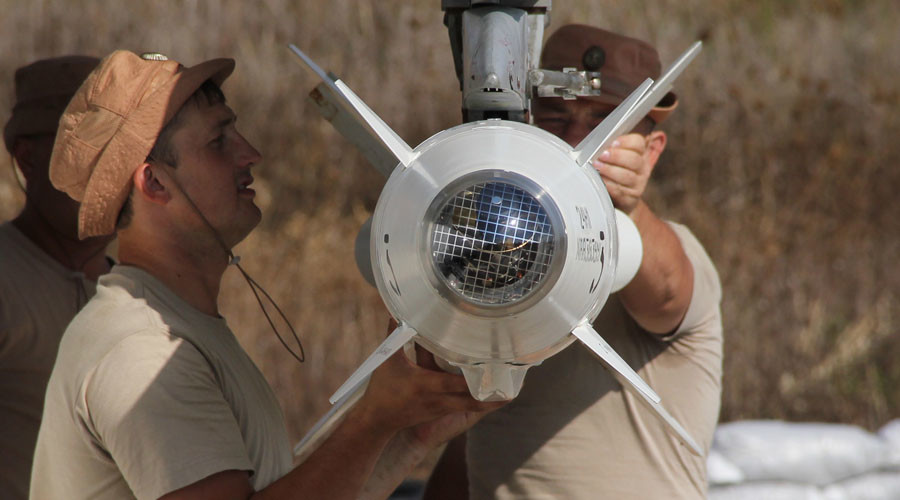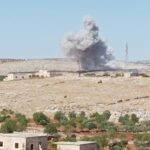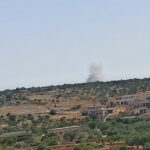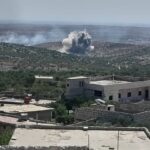
2712070 10/04/2015 Russian servicemen attach a Kh-25 high-precision missile to a Su-24 aircraft at the Khmeimim airbase in Syria. Dmitriy Vinogradov/RIA Novosti
On July 6, warplanes of the Russian Aerospace Forces carried out a series of airstrikes on militants’ positions in the northwestern Syrian region of Greater Idlib.
More than ten airstrikes hit positions in the outskirts of the towns of Ruweiha, Beinin, Sarjah and Shnan in the southern countryside of Idlib. No casualties were reported as a result of the airstrikes.
- Click to see full-size image. Via Twitter.
- Click to see full-size image. Via Twitter.
- Click to see full-size image. Via Twitter.
- Click to see full-size image. Via Twitter.
This was the first wave of Russian airstrikes to hit Greater Idlib in nearly two months. The last wave of airstrikes, which also targeted militants’ positions in the southern Idlib countryside, was on May 12.
The Russian airstrikes were likely a response to recent violations of the ceasefire in Greater Idlib by al-Qaeda-affiliated Hay’at Tahrir al-Sham and its Turkish-backed allies.
The airstrikes may have been also meant as a message to the Turkish military and its proxies who are currently preparing to launch a new operation against Kurdish forces in northern and northeastern Syria. Russia has already voiced its objection to any new Turkish operation in Syria.
The Turkish military maintains large presence in Greater Idlib, mainly to stop Syrian government forces from launch any new ground operation in the region where terrorist groups continue to roam free.
Turkey’s attempt to occupy more Syrian territory under the pretext of fighting Kurdish forces could lead to a reaction in Greater Idlib. Terrorist groups and Turkey’s proxies in the region may end up paying for any military move by Ankara against Kurdish forces.









